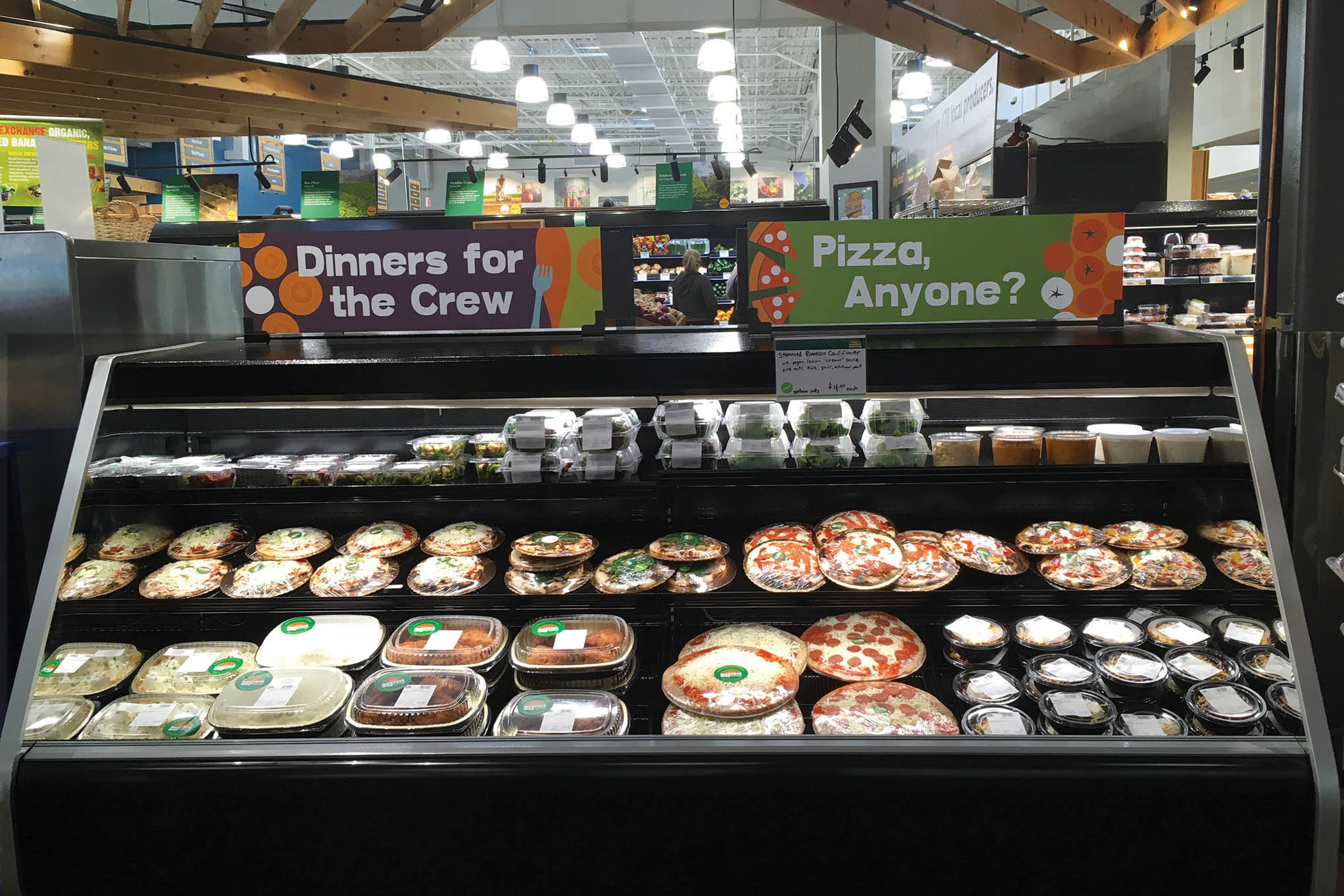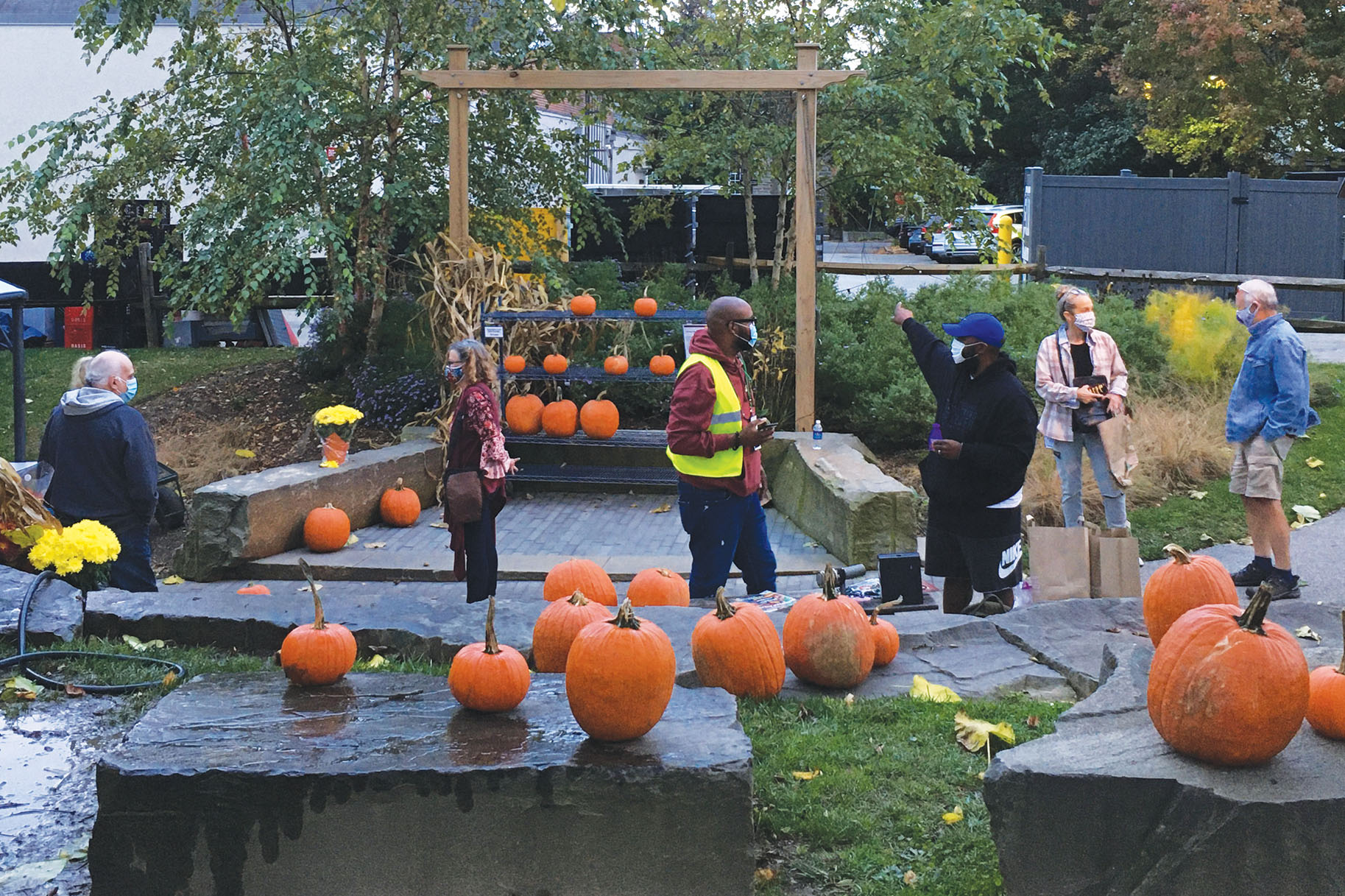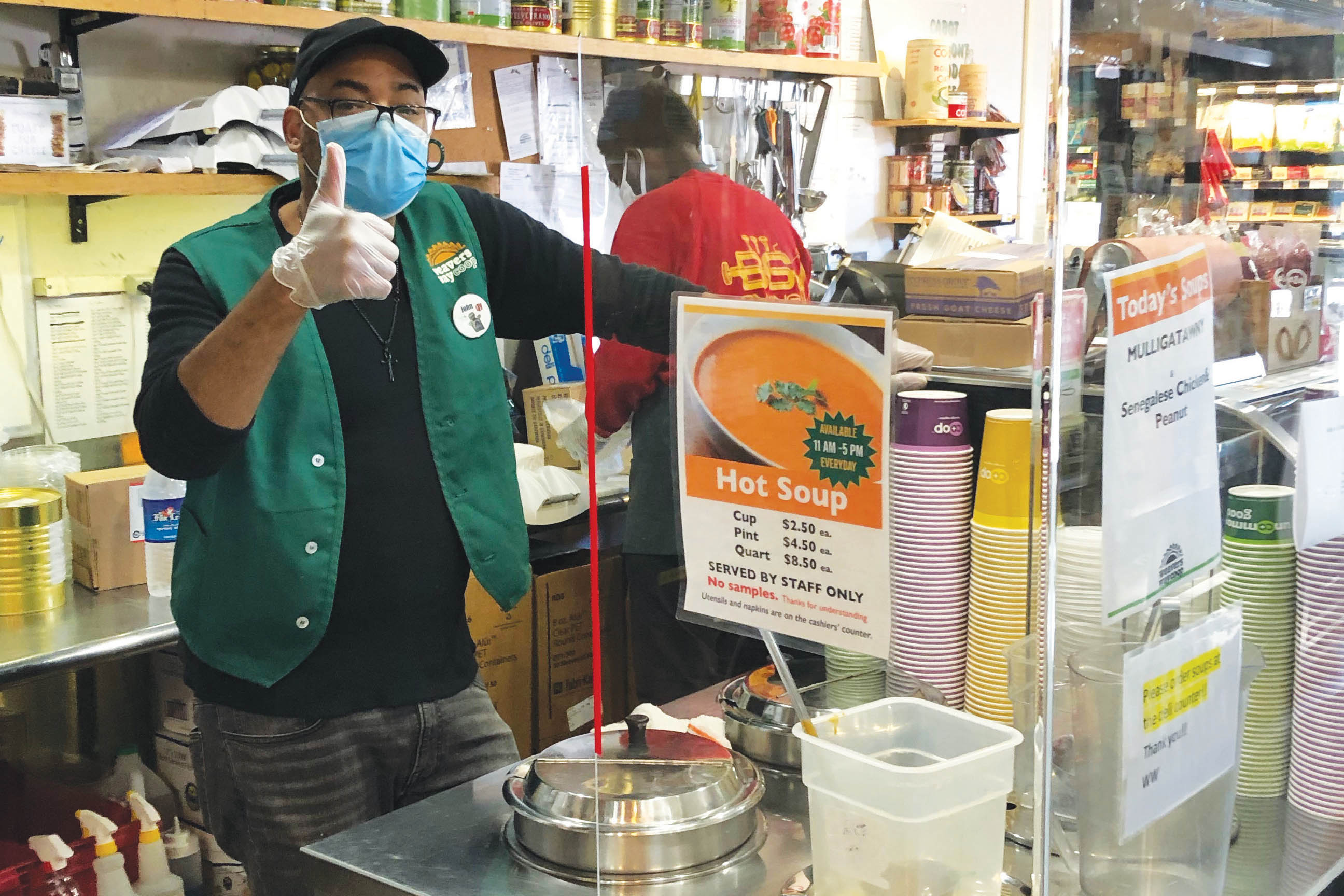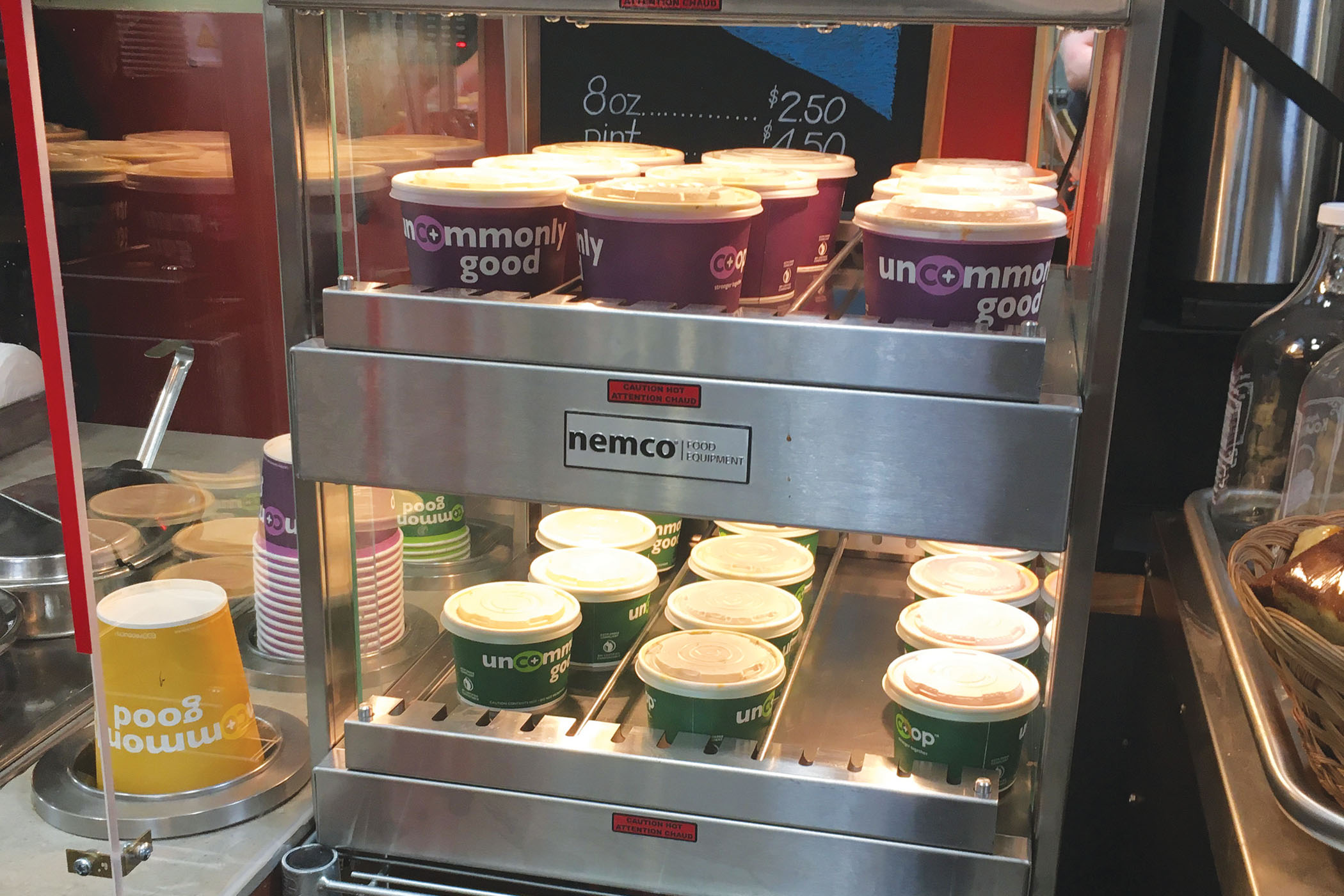Part 3 of 3: Many Unknowns to Confront as the Co-op Moves Forward
This is the third in a three-part series on how the outbreak of COVID-19 affected operations at Weavers Way.
The COVID-19 global pandemic has upended life for all of us — where we work, how we work, and especially the way we shop and interact with members of our community.
According to Weavers Way General Manager Jon Roesser, COVID informs all of the Co-op’s business decisions. “We don’t do anything without taking into account the virus and making sure that everything we’re doing meets public health official guidelines and is common sense in terms of operating an essential business during a pandemic,” he said.
Coronavirus has led to many changes in the Co-op’s three grocery stores and two health and wellness stores: caps on the number of shoppers permitted in a store at one time; the shutdown of hot bars, soup stations and salad bars; increased sanitization of stores: and constant cleaning of shopping carts and baskets.
How many changes are short term and how many are here to stay? For starters, say goodbye to self-serve salad bars.
“We won’t be returning to the days where you can build your own salad,” Roesser said. “Instead, we will have a variety of pre-packaged salads.”
Jax Arnold, front end manager at Weavers Way Ambler, doesn’t think that change will have much of an effect on that location. “Salad sales weren’t huge for us,” they said.
The area where the salad bar was located has been replaced by a stand-alone case that features additional grab-and-go items from the Prepared Foods department, including family-sized entrees and premade school lunches for kids.
“Grab and go has always done well in Ambler, so it’s just expanding that department in a way,” Arnold added.
In Chestnut Hill, the hot bar and salad bar areas are stocked with packaged prepared meals and salads. The store is experimenting with having hot items served by a staff person, and soups are now stored in a hot holding case where the self-serve soup wells were located.
Chestnut Hill Assistant Store Manager Valerie Baker said changes forced by the pandemic are also leading to some new options for shoppers. In recent months, the store has made space near the sandwich station for a tray with heat lamps where premade breakfast sandwiches are available.
“This is a great opportunity to replace some items with new items that shoppers have been requesting, such as to-go sides, cut-up fruit salads and maybe even smoothies,” she said. “This has also given us the opportunity to take advantage of our early bird shoppers. I think it is what shoppers are looking for and it will improve sales drastically.”
The Switch to Shopping in Ambler
Sales in Chestnut Hill have been hit hard by the closure of the hot bar, soup station and salad bar, in addition to the decreased amount of foot traffic on Germantown Avenue. Mt. Airy has also seen a decrease in sales since the pandemic hit as shoppers migrated to Ambler.
“I shop in Ambler now mostly because of COVID,” said Dan Harai (a former Mt. Airy shopper). “It’s very tight in the Mt. Airy and Chestnut Hill stores in the best of circumstances. I feel more comfortable here.”
Harai said he loves the Mt. Airy and Chestnut Hill stores and still shops there occasionally. Not so for Bonnie Mettler, who used to shop at those locations but now goes to Ambler.
“Mt. Airy and Chestnut Hill stores are too small,” she said. “The aisles are too close together. I feel more comfortable shopping in Ambler.”
Mettler said she may return to the Mt. Airy and Chestnut Hill stores, but only when the time is right. “Once everyone has the vaccine, all possibilities are open, and I might shop in Mt. Airy and Chestnut Hill again,” she said.
Co-op managers are watching shopper patterns with an eye toward the future. Roesser intends to lift the caps on the numbers of shoppers at some point, but admits he doesn’t know what will happen then. “I don’t know how people will feel post-pandemic shopping in the Mt. Airy store, for example when there’s 30 people in there,” he said.
As it is now, shoppers sometimes wait in lines to shop in Mt. Airy or Chestnut Hill stores. Fall is here and winter is around the corner. No one knows when there will be a vaccine. Co-op managers wonder what will happen when people have to wait in line in the cold or in a snowstorm. What happens if the COVID pandemic continues for many, many more months? How long can the Co-op continue to operate at a loss?
“We’re not going to run out of money,” Roesser said. “If it comes to the point where we are concerned about cash reserves, we may have to increase pricing to continue covering costs like battle pay for staff. We would take whatever corrective action we would have to in order to keep our stores running.”







